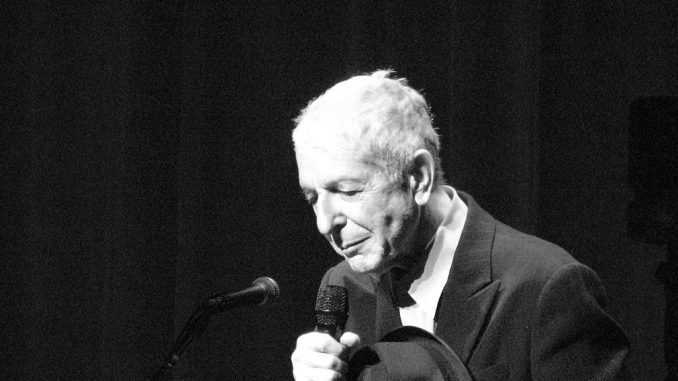
In a recent profile with The New Yorker, Cohen recalled an exchange he had with Bob Dylan, in which Dylan asked him how long “Hallelujah” took him to write. Cohen replied, “Two years,” at which point Cohen asked Dylan how long it had taken to write “I and I.” It took Dylan fifteen minutes, and, in truth, “Hallelujah” actually took Cohen five years. Given the scope and depth of the song, it’s not difficult to imagine Cohen painstakingly crafting his opus over half a decade.
That’s not to say Cohen wasn’t economical. “You Want It Darker,” Cohen’s final album, was also his 14th. Aside from a nine-year gap between 1992’s “The Future” and 2001’s “Ten New Songs,” and the eight-year gap between 2004’s “Dear Heather” and 2012’s “Old Ideas,” Cohen was relatively consistent in his release schedule, starting back in 1967 with his aptly-titled “Songs of Leonard Cohen.” Cohen never rushed, but if he needed to spend five years, he’d spend five years. “Hallelujah” speaks for itself in that regard.
In some ways, it’s unfortunate how much “Hallelujah” eclipsed Cohen’s larger body of work. His 1974 masterpiece “New Skin for the Old Ceremony” predates “Hallelujah” by a decade, and showcases a largely different Cohen than the one heard on 1984’s “Various Positions,” which is wholly distinct from his three-album output in the 2010s. The Leonard Cohen of the 1970s sounded not unlike Lou Reed, and the strained vocals (most affecting on the album’s closer, “Leaving Green Sleeves”) all over “New Skin for the Old Ceremony” were unique to that era of Cohen’s discography. His 1980s work, specifically 1988’s “I’m Your Man,” saw Cohen experiment with synthesized instrumentals. It’s one of his most interesting experiments, dated as it can sound — “First We Take Manhattan” is firmly a product of its time, but the force of Cohen’s battle cry, “First we take Manhattan / Then we take Berlin” has dulled little over the decades.
In Cohen’s old age, his music took on a largely quiet tone, a trend that began with “Old Ideas” and continued through 2014’s “Popular Problems” and “You Want It Darker.” Sung vocals transitioned to whispers, and the emphatic, curious instrumentals of his mid-career output softened and darkened. Recent Leonard Cohen music has been among the most quietly introspective poetry of his career, culminating in a final album in which Cohen stared his mortality in the face and shook its hand, unafraid of his end. Cohen passed less than three weeks after the album’s release.
Cohen was nothing if not versatile, but no matter what sounds he explored, common threads ran through all of his lyrics. He was fascinated with the blurred lines between the carnal and the religious, and perhaps “Hallelujah” became the Leonard Cohen song because it thoroughly emblematizes the relationship between the physical and spiritual worlds Cohen so simultaneously inhabited. Littered with religious imagery, “Hallelujah” details a shattered relationship through Abrahamic allegory, with allusions to the stories of both Samson and Delilah and King David emphasizing the spiritual frame in which Cohen saw everything.
Few songwriters have been as nuanced, detailed and enigmatic as Cohen, whose worldview was deeply entwined in every lyric he wrote. And although every song was a cryptogram, the riddle of his lyrics never eclipsed the transparency of his sentiment. In his 50-plus years as a poet and musician, Cohen was never mawkish, never obvious, and never clichéd.
When Cohen passed away on Nov. 7, the world lost one of its most original and emotionally-honest songwriters. In that same New Yorker profile, Leonard Cohen joked to David Remnick that he was “ready to die.” He may have been, but the world clearly wasn’t.
